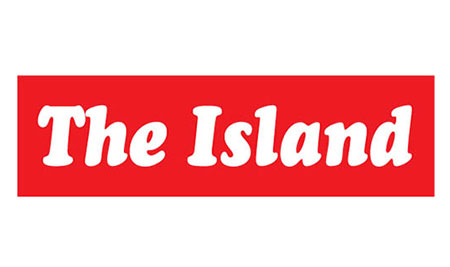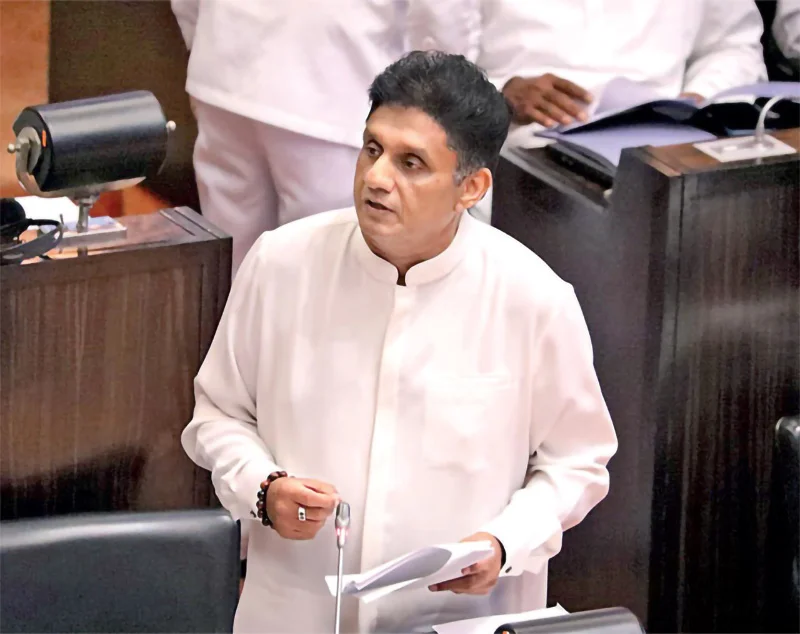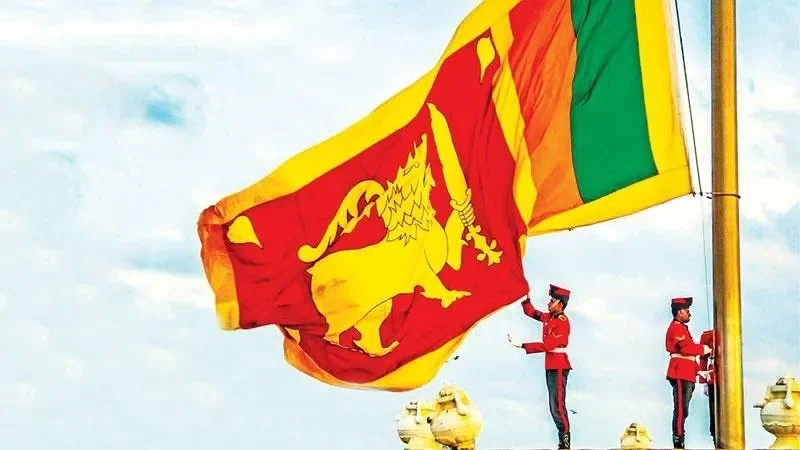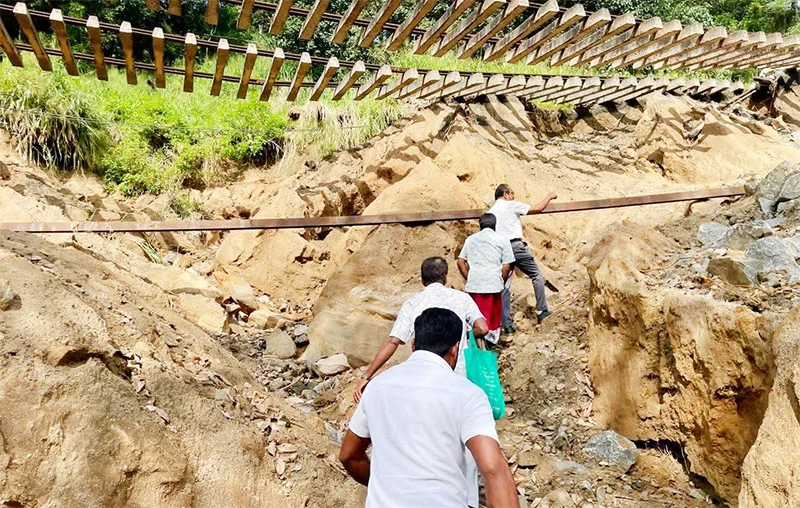News
Civil society calls for immediate moratorium on use of PTA

Civil society groups and individuals have called for an immediate moratorium on the use of the Prevention of Terrorism Act (PTA).
In a statement titled ‘Civil Society Statement on Government Proposals to Reform the Prevention of Terrorism Act’, they said: We reiterate that national security cannot be achieved by creating insecurity for already discriminated against and marginalized communities, and call for the repeal of the PTA. The repeal of the PTA must also be considered in light of the anti-terrorism and public security legal framework that Sri Lanka has in place, and the historical abuse of power by state entities.”
Full text of the statement: In June 2021 the government of Sri Lanka announced it would ‘reform’ the Prevention of Terrorism Act (PTA) and appointed a Ministerial Sub-Committee for that purpose. It was reported in the media that Kamal Gunaratne, the Secretary, Ministry of Defence and the head of the Technical Committee that functions under the Ministerial Sub-Committee, submitted the Technical Committee’s recommendations to the Ministerial Sub-Committee in November 2021.
Historically, for decades, the PTA has been weaponized against the Tamil community, and following the Easter attacks against the Muslim community as well. This has resulted in the victimization of members of these communities. It was also used against the Sinhalese during the JVP insurrection and now against dissenters. We reiterate that any process which seeks to tackle issues related to the PTA must address this factor to ensure those adversely affected by the law will receive justice, including reparations.
While the government has not shared its plans for the supposed “reform” of the PTA with the public, we note the Sri Lanka Consensus Collective’s (SLCC) statement of 29 November 2021 sets out proposals for reform the government shared with the said group. In the absence of official communication by the government, we consider the elements contained in the SLCC statement as the changes being deliberated by the government. We note that nearly all so-called changes proposed already exist in law and do not address any of the shortcomings in the PTA that enable grave human rights violations.
We call for repeal of the PTA and in the interim an immediate moratorium on the use of the law. This is in line with the requests of persons and communities adversely affected by the law. We reiterate that any law that purports to deal with terrorism must adhere to international human rights standards. In this regard, we set out below the provisions of the law that result in egregious human rights violations and the minimum standards that have to be followed to ensure the protection of fundamental rights.
The critical factor to take note is that the PTA is a human rights deficient law that does not adhere to basic human rights standards enshrined in international conventions, such as the International Covenant on Civil and Political Rights (ICCPR), which the government of Sri Lanka has ratified and hence has an obligation to respect and protect. Nor does it adhere to many provisions in the Constitution of Sri Lanka. In this context the following are key provisions in the PTA that result in grave human rights violations:
The PTA does not contain a definition of terrorism. Instead, the offences stipulated are those found in other laws, such as the Penal Code, to which the PTA makes reference. Hence, the decision as to whether the PTA would apply in a certain instance is a subjective decision that can be shaped by personal prejudice and bias, rather than objective standards. In this regard, the PTA does not adhere to the definition set out by the UN Special Rapporteur on Countering Terrorism while Protecting Human Rights. For instance, post- Easter attacks even persons with books in Arabic and decorative swords were arrested. Similarly, those memorializing the lives lost at the end of the war have been arrested.
The lack of basic due process safeguards in the PTA enables arbitrary arrest and detention, which continue to date. This is exacerbated by the lengthy periods of administrative detention. For example, for decades we have witnessed persons who had any connection to a person accused of an offence in the normal course of their employment or personal life being arrested, without investigations being conducted, and detained for months.
We reiterate that arrests should be made based only on evidence following investigation or reasonable suspicion.
The detention period should be that stipulated in the Code of Criminal Procedure and any extension of detention should be made by a judge, who should be satisfied of the reasons for continued detention and exercise discretion as to whether or not to extend detention.
There is documented evidence, including Supreme Court decisions and the Human Rights Commission’s (HRCSL) reports, which illustrate that the admissibility of confessions made to an Assistant Superintendent of Police (ASP) or above as evidence, has resulted in persons being tortured to extract confessions. This has normalized and entrenched the use of torture. Even if the confession is ruled inadmissible during trial, the existence of the provision creates room for persons to be subject to torture. This not only violates basic due process and fair trial rights of a person accused of an offence, but also calls into question the competence of the criminal justice system that has to rely on confessions to prosecute persons. Such a provision, which is a deviation from the norm, has no place in law. Instead, current provisions in the Code of Criminal Procedure and the Evidence Ordinance should be followed with regard to the admissibility of confessions.
Section 7(3) allows a person to be taken out of judicial custody to any other place for investigation. Section 15A empowers the Secretary, Ministry of Defence, to determine a person’s place of detention even after the person is remanded. This removes a person from the protection of judicial custody and empowers the Secretary to override a judicial order. The incident in September 2021 of the Minister of Prison Reforms and Prisoners Rehabilitation Affairs entering Anuradhapura prison and reportedly threatening persons detained under the PTA with a weapon and verbally abusing them illustrates the insecurity faced by such persons even when in judicial custody. Removing them from judicial custody would only exacerbate their vulnerability. As the Human Rights Commission’s national study of prisons documented, persons remanded under the PTA were subjected to severe torture when taken out of judicial custody or held in other places upon the instructions of the Secretary, Ministry of Defence.
Persons detained under the PTA spend a prolonged period of time in pretrial detention because the Act requires such persons to remain in remand custody until the conclusion of the trial, unless the Attorney General consents to the release on bail. For all arrests, provisions of the Bail Act should apply, and bail should be denied only if any of the exceptional circumstances set out in the Bail Act are met.
The PTA allows the Minister of Defence to issue Restriction Orders for up to 18 months. Restriction Orders can be used to prevent people from engaging in political activities, speaking at events, or advising an organisation. Such orders allow civic rights to be curtailed arbitrarily by the Minister with no due process, transparency or accountability.
The SLCC statement mentions the government stated that for the very first time a detained person would be able to challenge administrative detention in the Supreme Court. We point out that the right to challenge arbitrary detention, including under the PTA, is enshrined in the Constitution of Sri Lanka and is not a new right that any proposed reform could bestow. The challenge many detained persons face in accessing this existing right is the administrative restrictions on access to lawyers and lack of financial resources to retain competent counsel.
Similarly, the HRCSL Act already mandates the Commission to monitor the welfare of persons deprived of liberty and empowers it to access any place of detention unannounced. However, following the 20th Amendment to the Constitution in 2020, the HRCSL is no longer a legally independent body as appointment of the officers of the Commission is at the discretion of the President. This adversely impacts the activities of the Commission as well as public trust in the institution.
The Advisory Board established by Section 13 of the PTA, as we have pointed out in the past, is an inadequate protection mechanism that is not independent as its members are appointed by the President. Further, the Minister of Defence has the power to make rules on how the Board deals with representations made by detained persons. It therefore does not act as a safeguard against executive abuse of power. Any non-judicial mechanism that is established to decide on/recommend the release of persons detained under the PTA must be independent and entities, such as the Attorney-General’s Department, should not be able to veto its decisions.
The proposals shared by the government with SLCC fail to address the fundamental shortcomings of the PTA. Instead, they propose changes that already exist but are often observed in the breach.
We note with deep concern that the functioning of the aforementioned committees was not transparent and the recommendations were formulated without any consultation with members of civil society who have been working on issues related to the PTA or persons affected by the law. We call for greater transparency in the reform process from this point onwards and request the government to inform the public of the process for consultation and the proposed timeline for reform.
We reiterate that national security cannot be achieved by creating insecurity for already discriminated against and marginalized communities, and call for the repeal of the PTA. The repeal of the PTA must also be considered in light of the anti-terrorism and public security legal framework that Sri Lanka has in place, and the historical abuse of power by state entities. These entities should not be bestowed with additional power.
The way forward must give due recognition to the protection of physical liberty. Deprivation of physical liberty by the executive must be used only as last resort and strictly require sufficient basis that is determined on objective factors, judicial supervision of such basis, prompt and free access to legal representation including legal aid, prompt trials or release, and an enforceable right to compensation for arbitrary detention. The prohibition of arbitrary deprivation of liberty has acquired customary international law status and constitutes a jus cogens norm which Sri Lanka is duty bound to secure for its citizens.
The balance the government wishes to achieve between personal liberties and national security can only be achieved through addressing the root causes of conflict and violence. Attempts to further curtail civil liberties in the guise of national security will only exacerbate the insecurity of all communities and undermine the rule of law and democracy in Sri Lanka.
Signatories of the statement were: S. Annalaxumy, Bisliya Bhutto, S.C.C. Elankovan, Lawyer and Development Consultant Philip Dissanayake, A.M. Faaiz, Brito Fernando, Nimalka Fernando, Ruki Fernando, Aneesa Firthous, Amarasingham Gajenthiran, T.Gangeswary, K. Ginogini, Ranitha Gnanarajah AAL, B. Gowthaman, S. Hayakirivan, Director, THALAM, V. Inthrani, Noorul Ismiya, Vasuki Jeyshankar, Dr. Sakuntala Kadirgamar, S. Kamalakanthan – Social Activist, Mahaluxmy Kurushanthan, Kandumani Lavakusarasa, Human Rights Activist, Jensila Majeed, Buhary Mohamed, Human Rights Activist, Juwairiya Mohideen, Jaabir Raazi Muhammadh, Chairman, Voices Movement, P. Muthulingam, Thangaraja Prashanthiran, Dorin Rajani, Maithreyi Rajasingham, Executive Director, Viluthu , A.R.A. Ramees, V. Ranjana, Anuratha Rajaretnam, K.S. Ratnvale, Yamini Ravindran, AAL, Kumudini Samuel, Thurainayagam Sanjeevan, Shreen Saroor, Ambika Satkunanathan, Rev Fr S D P Selvan,
S. Selvaranie, Vanie Simon, P. N. Singham, Usha Sivakumar, N. Sumanthi, Vani Sutha, Ermiza Tegal, S. Thileepan – Social Activist, P Vasanthagowrey, Rev Fr Yogeswaran, Adayalam Centre for Policy Research, Alliance for Minorities, Centre for Human Rights and Development, Centre for Justice and Change, Eastern Social Development Foundation, Families of the Disappeared, Forum for Plural Democracy, Law and Society Trust, Mannar Women’s Development Federation, Rural Development Foundation, Tamil Civil Society Forum, Viluthu and Women’s Action Network
News
House erupts over suspension of Deputy Secretary General

Opposition and SJB Leader Sajith Premadasa yesterday raised concerns over the recent suspension of Parliament’s Deputy Secretary General and Chief of Staff, G.K.A. Chaminda Kumara Kularatne, alleging that the process appeared to be mala fide. Addressing Speaker Jagath Wickramaratne in Parliament, Premadasa said that the existence of a personal disagreement between the Speaker and the suspended official had created a potential conflict of interest.
Premadasa said disciplinary action against senior parliamentary officials had to be taken in keeping with established parliamentary precedents. He also questioned the legality and propriety of a lower-ranking official leading an inquiry against a senior officer.
“For the first time, we are witnessing a rift between the Speaker and the staff of the Secretary-General. All parties must step back, act democratically and ensure that the fundamental rights of Chaminda Kularatne are safeguarded,” he added.
ITAK Batticaloa District MP Shanakiyan Rasamanickam said Kularatne had not been given an opportunity to respond to the allegations made against him.
“This is a disgraceful situation. A complaint has been lodged against you with the Bribery Commission. Parliament is the supreme institution of democracy in this country, and the precedent being created here is dangerous,” Rasamanickam said, addressing the Speaker.
SJB Kandy District MP Chamindranee Kiriella said the Speaker was duty-bound to inform the House before disciplinary action was taken against a parliamentary official. SJB MP Ajith P. Perera said it was unethical for the Speaker to assume a leadership role in the inquiry, and called for the matter to be entrusted to an independent authority.
Responding on behalf of the Government, Chief Government Whip and Health and Mass Media Minister Dr Nalinda Jayatissa said the chief investigating officer, S.K. Liyanage, an Additional Secretary, had been appointed by the Staff Advisory Committee on 25 August, 2025. He said Liyanage had been selected from a pool of qualified officers at the Ministry of Public Administration and had prior experience in conducting investigations.
Leader of the House and Transport Minister Bimal Rathnayake said the Staff Advisory Committee had agreed on the respective powers of parliamentary officials, noting that the Secretary General would hold powers equivalent to those of Ministry Secretary, while the Deputy Secretary General would hold powers equivalent to those of an Additional Secretary.
“There is no irregularity in the conduct of the investigation or in the appointment of the investigating officers,” Rathnayake said.
On 24 January, 2026, Parliament announced the immediate suspension of Deputy Secretary General and Chief of Staff Chaminda Kularatne with effect from 23 January, citing concerns relating to his appointment. Kularatne had assumed duties on 15 September, 2023.
On Monday, Kularatne filed a complaint with the Commission to Investigate Allegations of Bribery or Corruption against Speaker Jagath Wickramaratne, alleging corruption. His legal counsel, Attorney-at-Law Mithun Dias, said the complaint had been filed against the Speaker in his personal capacity and not against the government.
However, Dr Jayatissa told the House that the investigation into Kularatne was based on concerns relating to his appointment, qualifications and the process by which he had been confirmed in that post and was not linked to any personal dispute with the Speaker.
By Saman Indrajith
News
78th Independence Day celebrations at Bogambara Stadium

The 78th Independence Day celebrations in the Central Province are scheduled to be held today from 8:00 AM at the Bogambara Stadium, Kandy.
The celebrations are jointly organised by the Central Provincial Council and the Kandy District Secretariat. The Governor of the Central Province, Prof. S.B.S. Abeykoon, is expected to grace the occasion as the Chief Guest.
The event will also see the participation of Kandy District Members of Parliament, the Chief Secretary of the Central Province, Mr. Ajith Premathilake, as well as representatives from the Tri-Forces, Police, school students, and various voluntary organisations.
The ceremony will feature a formal parade and cultural performances by school children.
By S.K. Samaranayake
News
Colombo-Kandy railway line to be fully restored this year – Minister Bimal

Minister of Transport, Highways, and Urban Development, Bimal Rathnayake, has announced that the reconstruction of the Colombo-Kandy railway line, which was severely damaged by landslides in the Balana and Kadugannawa areas, will be completed within this year to restore normal train services.
The Minister made this statement during the Kandy District Development Committee meeting held at the District Secretariat. He noted that work will commence following the observations and technical reports provided by the National Building Research Organisation (NBRO) regarding the stability of the landslide-affected areas.
Financial Management and Development
Minister Rathnayake emphasised that the government possesses the necessary funds for development projects.
“Our government has the funds. However, all officials must ensure these funds are managed efficiently so that they are fully utilised for development, without being returned to the Treasury at the end of the year,” he stressed.
Improvements in Public Transport
Highlighting the progress in the transport sector, the Minister shared several key updates
• Recruitment: 700 new employees have been recruited to the Sri Lanka Transport Board (SLTB) and are currently undergoing training.
• School Transport: Steps are being taken to strengthen the ‘Sisu Sariya’ school bus service within the Kandy District.
• Infrastructure: The reconstruction of the Peradeniya Black Bridge (Kalu Paalama), which was damaged during the ‘Ditwah’ disaster, is nearing completion.
Welfare facilities for Private Transport Workers
The Minister also revealed plans to support the welfare of private bus drivers and conductors.
“We must look after the workers in the private transport sector as well. We are planning to establish a welfare fund for them and are taking steps to include them in the Employees’ Provident Fund (EPF) system,” he added.
Concluding his remarks, the Minister urged state officials to perform their duties responsibly and ensure that the inefficiencies seen under previous administrations do not recur.
By S.K. Samaranayake
-

 Opinion5 days ago
Opinion5 days agoSri Lanka, the Stars,and statesmen
-

 Business6 days ago
Business6 days agoClimate risks, poverty, and recovery financing in focus at CEPA policy panel
-

 Business4 days ago
Business4 days agoHayleys Mobility ushering in a new era of premium sustainable mobility
-

 Business1 day ago
Business1 day agoSLIM-Kantar People’s Awards 2026 to recognise Sri Lanka’s most trusted brands and personalities
-

 Business4 days ago
Business4 days agoAdvice Lab unveils new 13,000+ sqft office, marking major expansion in financial services BPO to Australia
-

 Business4 days ago
Business4 days agoArpico NextGen Mattress gains recognition for innovation
-

 Business3 days ago
Business3 days agoAltair issues over 100+ title deeds post ownership change
-

 Business3 days ago
Business3 days agoSri Lanka opens first country pavilion at London exhibition













